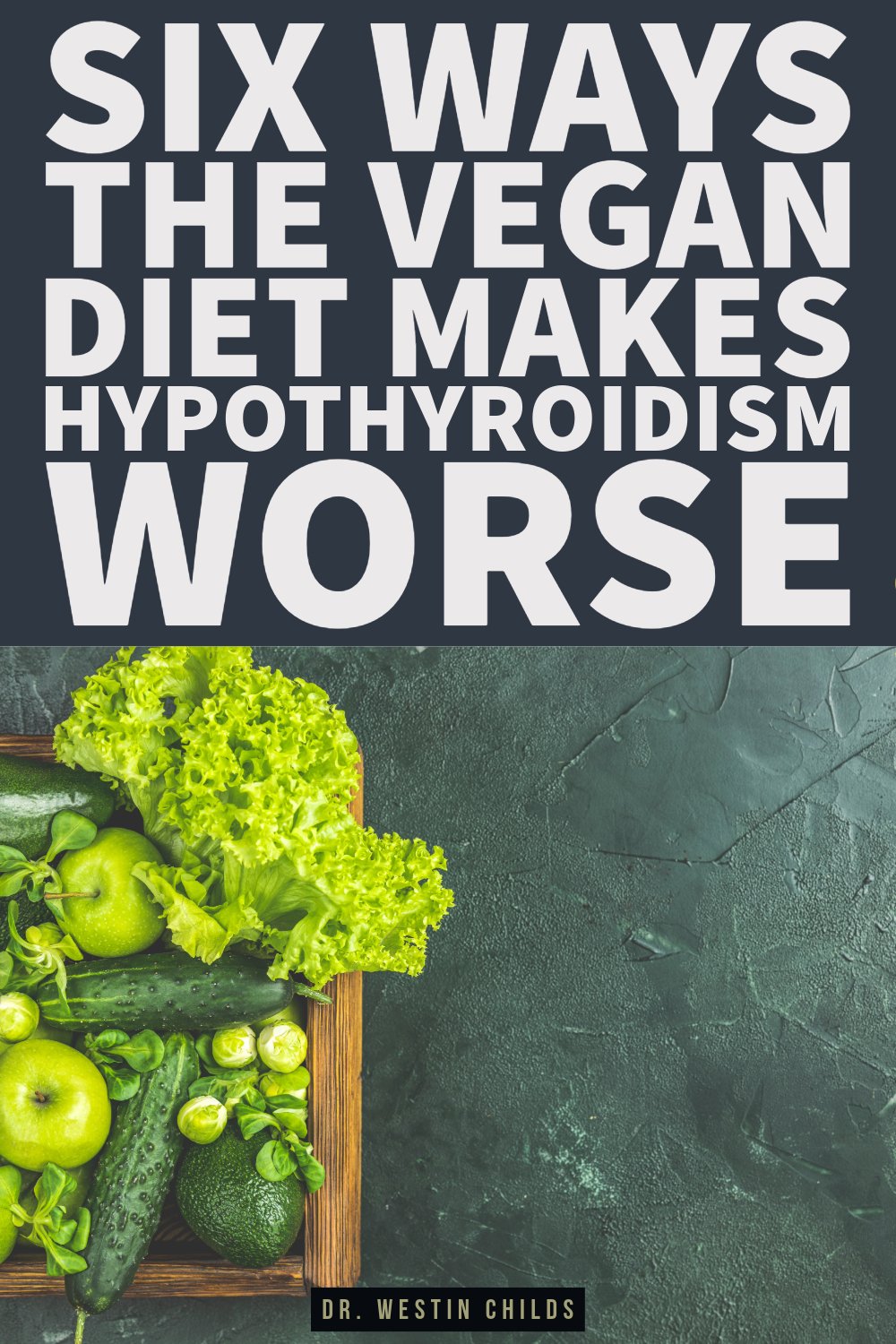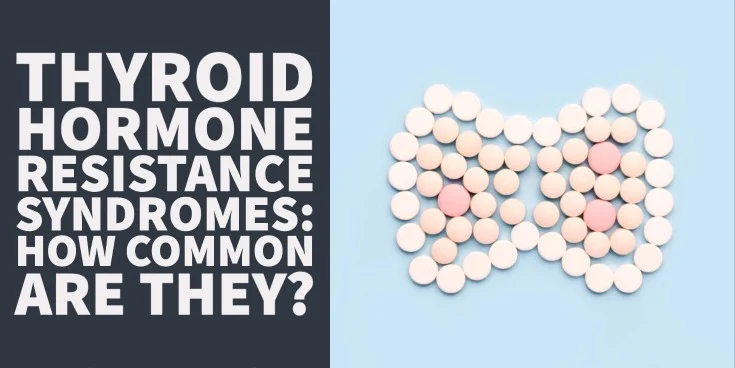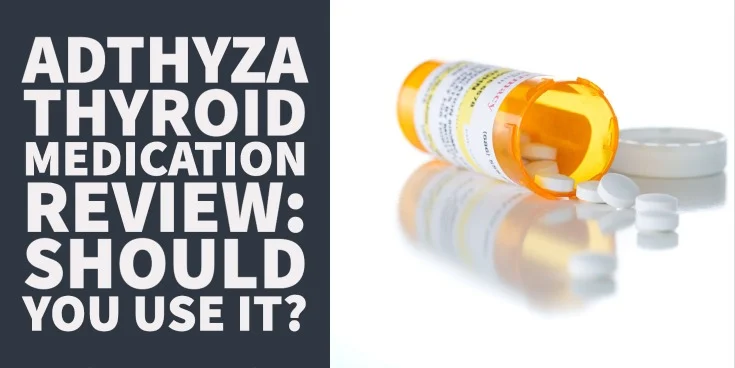Which diet is best for hypothyroidism?
There’s a lot of debate about this topic and, every now and then, the vegan diet gets recommended as a contender.
And I get why.
If you look at the data, there’s no question that the vegan diet has the potential to improve a huge number of diseases such as diabetes, obesity, and nonalcoholic fatty liver disease (1).
And don’t thyroid patients struggle with all these conditions (2), more so than the average population?
Absolutely.
At first glance, then, it seems like going vegan is a no-brainer if you have hypothyroidism, right?
Not exactly.
Because when you take a deeper dive into the nutritional aspects of the vegan diet, you start to see that it promotes problems that may make thyroid function worse.
Here’s what I mean:
DOWNLOAD FREE RESOURCES
Foods to Avoid if you Have Thyroid Problems:
I’ve found that these 10 foods cause the most problems for thyroid patients. Learn which foods you should avoid if you have thyroid disease of any type.
The Complete List of Thyroid Lab tests:
The list includes optimal ranges, normal ranges, and the complete list of tests you need to diagnose and manage thyroid disease correctly!
Why The Vegan Diet May Make Thyroid Function Worse
#1. By Making it Difficult to Hit The Ideal Protein Intake That Thyroid Patients Require
Protein is more important for thyroid function than you probably realize.
Why?
Because protein is needed to build muscle mass and skeletal muscle is one of the biggest targets of thyroid hormone action in the body.
Having more muscle mass means more thyroid hormone action which means a higher metabolism and better thyroid function.
And, unfortunately, getting the protein that is required by the thyroid on the vegan diet is no easy task.
It’s not that plants don’t contain protein, they do, but their protein remains locked up in the cell and is, therefore, hard for the body to extract.
As a result, protein from plants is only about 50-60% efficient compared to animal protein which is about 98-99% efficient (3).
In other words, if you were to eat a plant that has 10 grams of stated protein, your body would only end up absorbing about 5-6 grams.
On the other hand, if you were to eat 10 grams of animal protein, your body would absorb pretty darn close to the full 10 grams.
This is a huge issue for many thyroid patients because they already struggle to meet their daily protein intake of at least 100 grams each day.
100 grams is just the bare minimum, by the way, the ideal amount is 80-100% of the calculation of 1 gram of protein per pound of ideal body weight.
That’s problem number 1, problem number 2 is that most plant sources of protein happen to also be calorically dense, and, even if they aren’t, you end up needing to overeat on calories simply to account for the decreased efficiency of their protein content.
As a result, it’s very easy to accidentally gain weight when trying to hit protein goals from only plants.
Case in point, chia seeds, flax seeds, and hemp hearts.
These are decent sources of plant-based protein, but they also happen to be high in fats as well.
And if you wanted to move to other sources, you’d end up needing to consume high amounts of soy which can be problematic for many thyroid patients.
This pretty much leaves you with processed protein powders like pea protein which isn’t necessarily bad, as we will soon discuss.
#2. By Promoting Vitamin B12 Deficiency
Vitamin B12 deficiency is already a huge problem for hypothyroid patients and eating primarily vegan only makes this problem worse.
At least one study showed that up to 68% of hypothyroid patients may be B12 deficient (4) just by virtue of the impact hypothyroidism has on B12 absorption.
And several studies have shown that B12 deficiency among vegans ranges anywhere from 30% to 47% (5).
If you were to stack the vegan diet on top of hypothyroidism, you’d probably end up with a deficiency rate well into the 70-80th percent range.
Why is this a problem?

Because the symptoms of B12 deficiency happen to mimic many of those of hypothyroidism which makes diagnosing and managing thyroid disease all the more difficult.
It’s already hard enough for thyroid patients as is, so there’s no need to complicate the picture further.
The B12 problem isn’t the end of the world, though, because you can solve it relatively easily which we will discuss later.
#3. By Promoting Iron Deficiency
Iron happens to be very important for supporting thyroid function because the enzyme thyroid peroxidase requires it.
As an enzyme inside the thyroid gland, the job of thyroid peroxidase is to help create thyroid hormones.
If you don’t have enough iron, your body will be less efficient at making thyroid hormone and your thyroid symptoms will be worse.
It’s as easy as that.
On top of iron being necessary for thyroid function, it happens to also be important for hair growth.
And because thyroid patients suffer from hair loss, iron supplementation can be a secret remedy for hair growth in this group of people.
Just like B12, hypothyroid patients already struggle to keep their iron levels normal, so when you throw the vegan diet on top of it, you end up with a much higher rate of iron deficiency than is seen in either condition alone.
For perspective, iron deficiency is seen in about 27% of women on the vegan diet (6) and around 26% of hypothyroid patients (based on anemia as the diagnostic criteria).
Is it possible to get iron from plant foods?
Yes, but the absorption of non-heme iron found in plants like whole grains and legumes is blocked by the co-occurring presence of phytic acid in these same foods.
You can supplement with extra iron to combat this problem but you have to remember that iron supplements block the absorption of thyroid medication (7).
So if you aren’t careful about when you take your iron supplement, you could very easily be making your thyroid function worse.
#4. By Contributing to Vitamin D Deficiency
Vitamin D acts to protect your thyroid gland from autoimmune thyroid disease as well as thyroid cancer which makes it critical for ALL thyroid conditions, not just hypothyroidism.
With up to ⅓ of the global population being vitamin D deficient, it’s clear that pretty much everyone has a hard time getting their daily dose of vitamin D.
Sunlight is typically the primary source of D for most people but due to many people staying indoors and the judicious use of sunscreen, food has become more and more important.
And it just so happens that the vitamin D found in plants (D2) is not quite as active, and is found in smaller quantities (8), as the vitamin D found in animal products (D3).
As a result, vegans will get less usable vitamin D from their diet compared to those who consume animal products.
Vitamin D deficiency is super easy to treat, though, so it’s not something that vegans need to worry about too much.
#5. By Worsening Mental Health
This one isn’t a slam dunk, but there is some evidence to suggest that people on a vegan diet have higher rates of mental health conditions compared to those eating mixed diets.
The data aren’t conclusive, though, with some studies showing a higher association and others showing no association (9).
It’s hard to know exactly what is going on here, but my best guess is that there probably is a true organic connection owing to higher rates of vitamin deficiencies and orthorexia among people who go vegan.
Either way, it’s not ideal because hypothyroidism already increases your risk of both depression and anxiety.
Want to Go Vegan Anyway? Then Do This
Does this mean that hypothyroid patients should never go vegan?
No, I wouldn’t say that at all.
In fact, I do think there’s a place for the temporary use of the vegan diet in healing the body and I’ve used it successfully in many thyroid patients, especially those with Hashimoto’s.
In my opinion, though, long-term use of the vegan diet is not ideal for patients with hypothyroidism for the reasons I just mentioned.
But if you want to go vegan for moral or religious reasons, then here’s how to do it to prevent thyroid problems:
- Eat only whole foods and make sure to cook or steam your vegetables – If you go vegan, be sure to avoid processed foods while opting for whole foods instead. Be careful with high doses of raw veggies, though, as they do contain goitrogenic compounds that can block iodine uptake into the thyroid gland. To prevent this problem simply boil or steam your veggies.
- Supplement with pea protein – Remember, protein intake is critical for hypothyroid patients and pea protein provides you with a calorically efficient way to meet your daily protein demands. This one, for instance, provides 20 grams of vegan protein for 101 calories. Depending on your diet, you’ll probably need around 2-4 scoops per day (that’s 40 to 80 grams of protein).
- Keep an eye on both your ferritin and iron levels and take iron supplements if needed – These tests will ensure that iron deficiency isn’t impairing your thyroid function. If you find that either is suboptimal, simply supplement with some extra iron.
- Supplement with all three active forms of vitamin B12 – It’s a good idea to take a B complex if have hypothyroidism anyway, but make sure to find one that contains all 3 active forms of B12 as adenosylcobalamin, methylcobalamin, and hydroxycobalamin. You can brute force absorption and basically ignore GI-related problems by taking 1 mg of each of these.
- Spend 20 minutes in the sun with at least 40% of your body exposed (and take vitamin a D3 supplement if needed) – This is the best all-natural way to increase your vitamin D level. And if you’re going to take D3, you might as well add vitamin A and K2 for their thyroid-supporting benefits as well.
- Don’t forget about calories – Going vegan is often associated with natural weight loss, but if you are trying to hit protein goals it’s easy to accidentally consume more calories than you need.
Would I say vegan is the ideal diet for hypothyroid patients? Not necessarily, but I do think the “best” diet for hypothyroidism is one that incorporates plenty of fruits and vegetables and this is something that the vegan diet does right.
Sprinkle some animal protein, eggs, and dairy (if you tolerate it) to hit at least 100 grams of protein per day, and now you’re onto something.
While eating the right type of foods is important, so is avoiding the wrong ones.
And if you want to learn which food and food groups should be avoided if you have hypothyroidism, check out this article next.
Scientific References
#1. https://www.ncbi.nlm.nih.gov/pmc/articles/PMC10665534/
#2. https://www.ncbi.nlm.nih.gov/pmc/articles/PMC10572395/
#3. https://www.ncbi.nlm.nih.gov/pmc/articles/PMC9006591/
#4. https://www.ncbi.nlm.nih.gov/pmc/articles/PMC10521342/
#5. https://academic.oup.com/nutritionreviews/article/71/2/110/1940320
#6. https://www.ncbi.nlm.nih.gov/pmc/articles/PMC6367879/
#7. https://pubmed.ncbi.nlm.nih.gov/9191742/
#8. https://www.ncbi.nlm.nih.gov/pmc/articles/PMC3651966/
#9. https://pubmed.ncbi.nlm.nih.gov/36045075/








